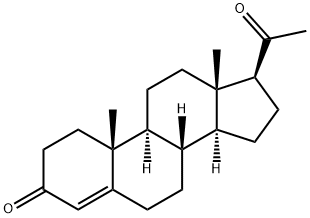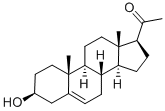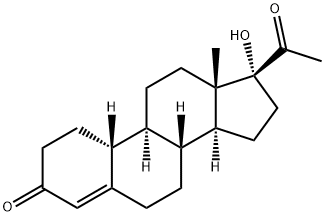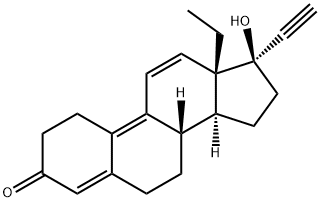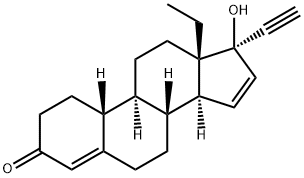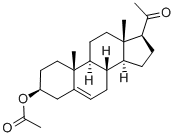Progesterone , USP level , 57-83-0
Synonym(s):
Lutein;Progesterone;Xanthophyll;4-Pregnene-3,20-dione;Progesterone - CAS 57-83-0 - Calbiochem
CAS NO.:57-83-0
Empirical Formula: C21H30O2
Molecular Weight: 314.46
MDL number: MFCD00003658
EINECS: 200-350-6
| Pack Size | Price | Stock | Quantity |
| 25G | RMB398.40 | In Stock |
|
| others | Enquire |
PRODUCT Properties
| Melting point: | 128-132 °C (lit.) |
| Boiling point: | 394.13°C (rough estimate) |
| alpha | 186 º (c=1, ethanol) |
| Density | d23 1.166; d20 1.171 |
| refractive index | 182 ° (C=2, Dioxane) |
| Flash point: | 2℃ |
| storage temp. | room temp |
| solubility | H2O: 25 mg/mL, may be clear to slightly hazy |
| form | powder |
| color | Yellow to yellow-brown |
| biological source | synthetic (organic) |
| Water Solubility | <0.1 g/100 mL at 19 ºC |
| Merck | 7773 |
| BRN | 1915950 |
| BCS Class | 4 |
| Stability: | Stable. Incompatible with strong oxidizing agents. |
| InChIKey | RJKFOVLPORLFTN-LEKSSAKUSA-N |
| LogP | 3.870 |
| CAS DataBase Reference | 57-83-0(CAS DataBase Reference) |
| NIST Chemistry Reference | Progesterone(57-83-0) |
| EPA Substance Registry System | Progesterone (57-83-0) |
Description and Uses
Progesterone, along with pregnenolone, is the biosynthetic precursor of all other steroid hormones. Progesterone is synthesized from cholesterol by the sequential action of desmolase in the mitochondria, which produces pregnenolone, followed by Δ4,5-
Steroid hormone produced by the corpus luteum. Induces maturation and secretory activity of the uterine endothelium; suppresses ovulation. Progesterone is implicated in the etiology of breast cancer.This compound is a contaminant of emerging concern (CECs).
Safety
| Symbol(GHS) |  GHS08 |
| Signal word | Danger |
| Hazard statements | H351-H360FD-H362 |
| Precautionary statements | P202-P260-P263-P264-P270-P308+P313 |
| Hazard Codes | Xn,T,F |
| Risk Statements | 40-45-62-36-20/21/22-11 |
| Safety Statements | 36/37-45-53-16 |
| RIDADR | UN 1648 3 / PGII |
| WGK Germany | 3 |
| RTECS | TW0175000 |
| HS Code | 29372390 |
| Hazardous Substances Data | 57-83-0(Hazardous Substances Data) |
| Toxicity | LD50 intraperitoneal in rat: 327mg/kg |

